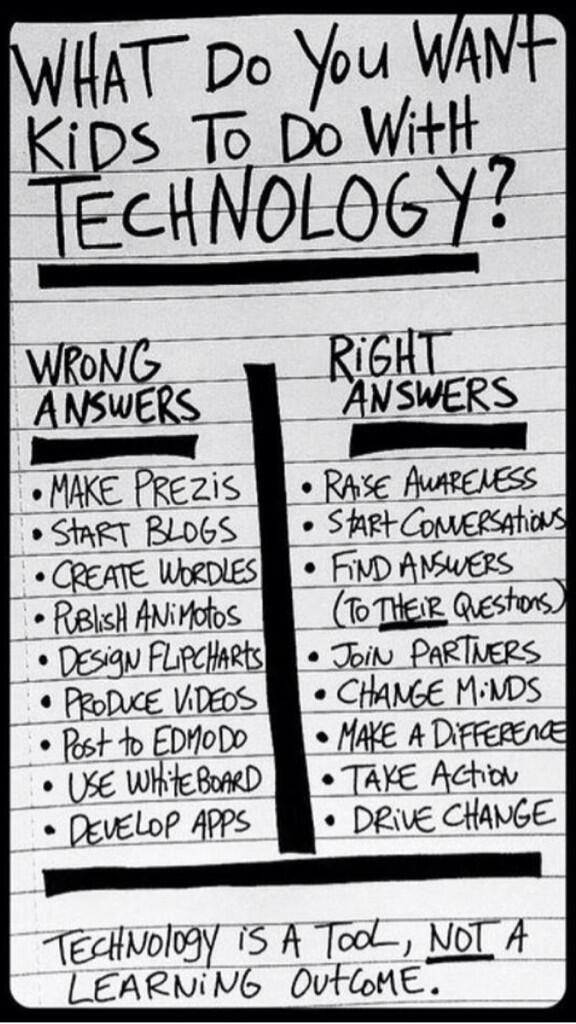I am blessed with a holistic brain.
What I mean is, my brain is awesome at connecting the wide and varied input I deliver to it - my synapses fire into the Tardis that is my mind and snippets of info rub up against thoughts and other facts and form little gangs of newly hatched ideas.
These gangs of ideas act like magnets to attract other snippets and form new opinions which I should really bother to share more often.
I have been thinking about gun control and regulation.
And I have been attending a number of digital education seminars and workshops again lately (I say again because I did this about 8 years ago in my other life too).
The following is what happened when these two main things rubbed together in my Tardis.
In the digital education world we "tsk tsk" and shake our heads when we hear of
schools banning cellphones and BYOD (Bring Your Own Devices) from schools (I would like to say Learning Environments but in this instance the institutionalised term, schools, is more appropriate).
The ideas behind that banning are numerous but include things like "If we ban them we will stop cyber bullying" or "If we exclude unauthorised devices from our network students won't be able to sext*"
We "Tsk tsk" because it is not the cellphones or the BYO devices that are the problem. We shake our heads and wonder why those Learning Leaders are ignoring the challenge of some student led critical thinking. We are sad because of the missed opportunities to use our
key compentency tools to develop Digital Citizenship and foster positive online morals and values.
We think, when has sticking our heads in the sand and shutting down discussion ever made a significant contribution to our issues?
Let's talk about cyber bullying and the impact; let's unpack the issues surrounding sexting and create a dialogue about what is really going on.
We need to move past the dictatorship of Cyber Safety and empower students to be responsible self governed
Digital Citizens.
My best friend lives in America and each day we yak and yarn about what is happening in our worlds. Guns and Boston Bombings have been a big part of that lately. We talk about gun control and stricter laws and the constitution.
But is gun banning any different than cellphone banning?
I mean, I am all for rights, but the constitution was written back in the day when you were lucky to get one shot off per minute and semi automatic weapons weren't even something you imagined in your wildest dreams...
In a time when getting shot, from a health perspective, REALLY meant you could die. Medicine has come a LONG way since then, and speaking of a long way - that's what you were from getting any help!
We all need to encourage a dialogue into the weapons equivalent of Digital Citizenship... especially now that we have
3d printers.
Maybe the discussions are one in the same - empowering all citizens to get on the same page in terms of mindful self governing and away from forcing a big brother dictatorship through wilfully ignorant misdirected and ill-informed exertions of "rights".
Encouraging focus on the deeper issues rather than floundering in the squeaky wheel surface features.
Meanwhile...what does it mean about me that I would like to ban banning.....
*sext/sexting -electronically sending a nude or partially nude picture of yourself (apparently about 1 in 5 young people has sexted...)








